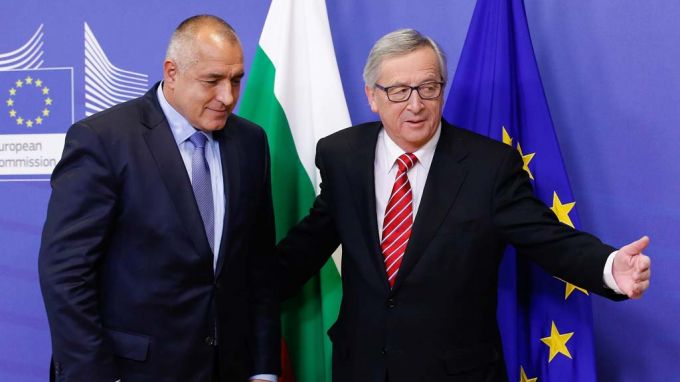
Until recently, top European Commission officials were making it plain they were not particularly interested in and even disapproved of the construction of the South Stream gas pipeline that was supposed to deliver Russian gas across the Black Sea to the Bulgarian coast, and from there, by land to Central and Western Europe. The shock of Vladimir Putin’s decision to terminate the project, directly laying the blame for this at Bulgaria’s door, reverberated across the world, but once the dust had settled, Brussels evidently came to realize that the country that stood to lose most from the geopolitical confrontation with Moscow over Ukraine was the Union’s poorest member, which rightly or wrongly, regarded the gas pipeline project as the goose that would lay golden eggs in transit fees.
This became all too apparent during the first official visit abroad by the second-time-round Prime Minister of the country Boyko Borissov to Brussels on Wednesday and Thursday. European Commission President Jean-Claude Juncker himself tried to allay Borissov’ fears, reassuring him that Bulgaria was not alone, that he would not put up with the country’s being blackmailed, that the EU stood firmly behind it but that it would also take practical steps to help the country’s development and promote the welfare of its citizens. These generous promises are in fact well-earned by Sofia which, in the case of the highly controversial pipeline project did one thing and one thing only - to obey Brussels, setting down its terms – that Moscow abide by the EU’s third energy package. Disappointed, Sofia had to receive some sort of compensation for its loyalty. Now there is talk in EU circles that not all is lost, that against all odds the pipeline could be built and pass via Bulgaria, but that everything was in Moscow’s hands, as it must meet European legislation requirements, valid on Bulgarian territory instead of blackmailing Sofia.
Brussels’ moral support and its promises of higher financial subsidies for Bulgaria after the South Stream fiasco probably sounded like music to the ears of the distraught Bulgarian officials, all the more so that on the heels of the assurances of solidarity, came the news that the European funding for Bulgaria in the sphere of the environment and regional development that had been withdrawn due to irregularities, would be resumed within days. Adding to all this the support for the government of European Parliament President Martin Shulz and especially the confidence expressed by European Commission President Jean-Claude Juncker and by President of the European Council Donald Tusk, that Bulgaria was ready to join Schengen and that the monitoring in the sphere of justice and home affairs Bulgaria is subject to would be lifted within a matter of years, it can safely be said that the Bulgarian delegation has every right to be pleased with the talks it had in Brussels.
English Milena Daynova
The new plenary session of the 51 st National Assembly began with declarations about the priorities of the political parties. For GERB-SDS, the main task is the formation of a regular government and a stable ruling majority, MP Toma Bikov said. He..
GERB-SDS terminates the negotiations for the formation of a regular government due to the refusal of Democratic Bulgaria to support a GERB candidate for prime minister, said GERB. ''No agreement was reached with Democratic Bulgaria on the..
The Movement for Rights and Freedoms (DPS) celebrates its 35th anniversary today. The two wings of the movement - DPS-New Beginning, led by Delyan Peevski, and Ahmed Dogan's Alliance for Rights and Freedoms (ARF) - are marking the event separately. The..

+359 2 9336 661
